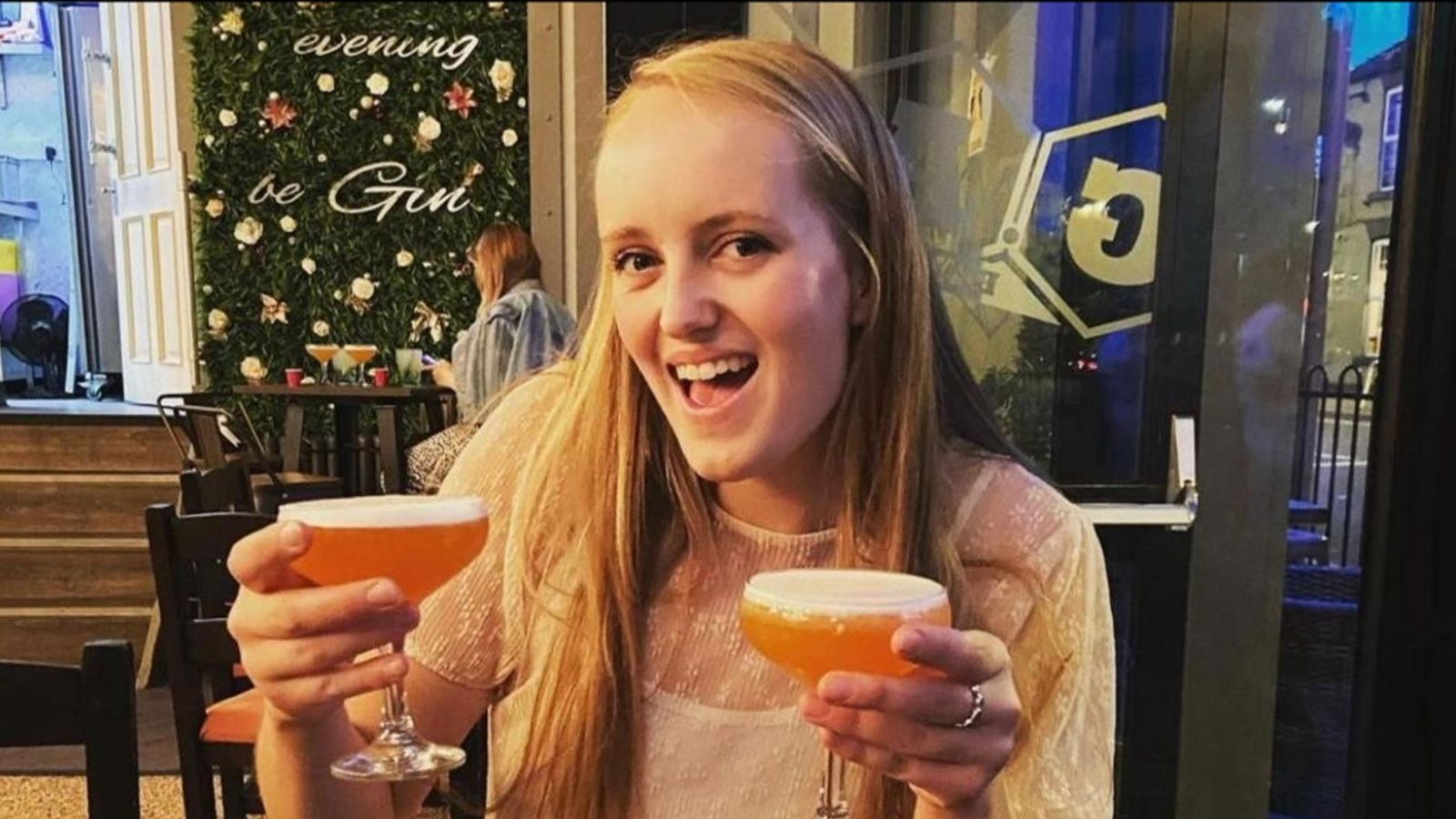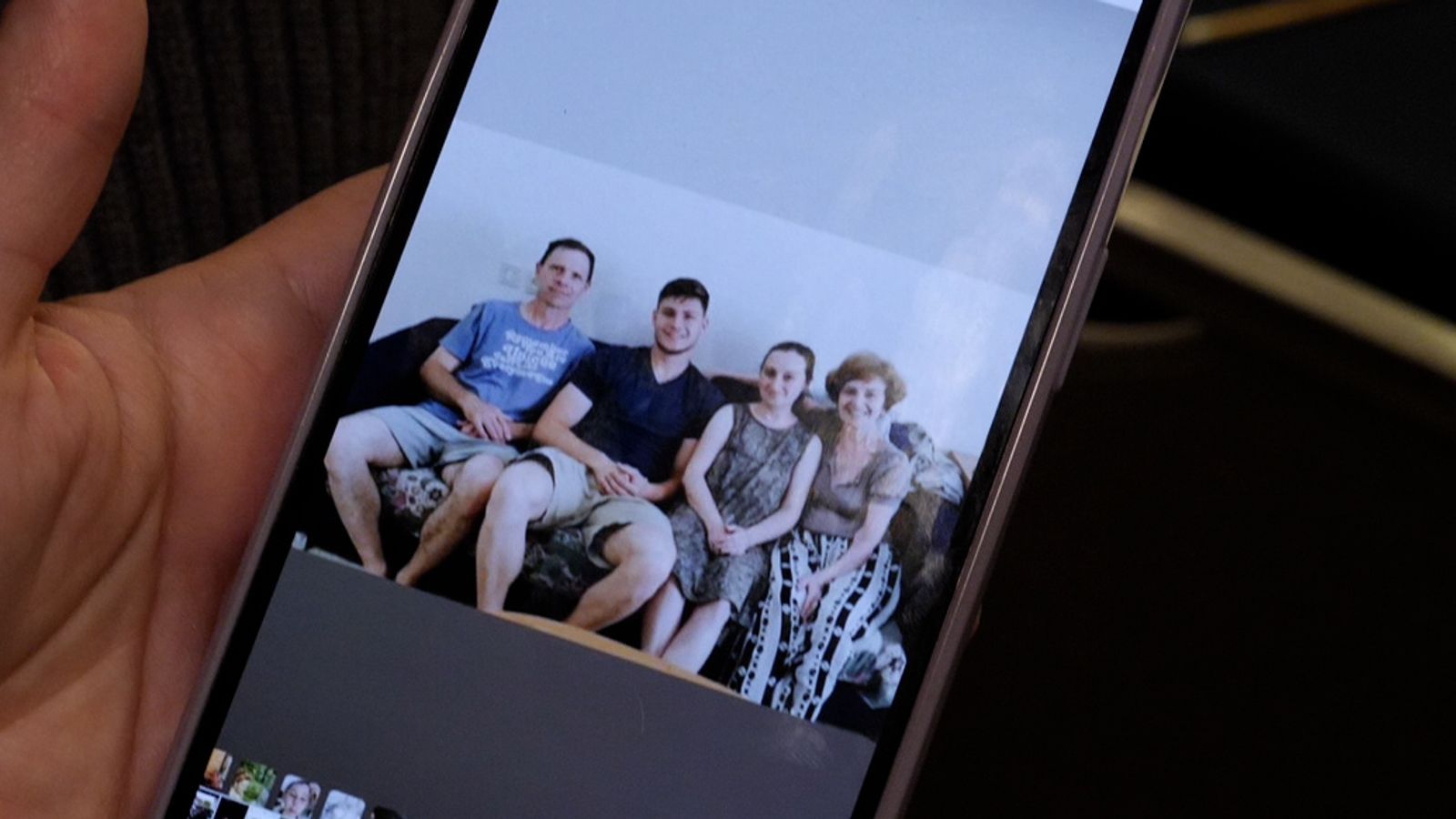The parents of Gracie Spinks have told Sky News how she “thought she was safe” after reporting her stalker to the police.
Ms Spinks, 23, was killed by Michael Sellers, on 18 June two years ago in Duckmanton, Derbyshire.
She reported Sellers, her “obsessed” former colleague, to Derbyshire Police multiple times before he killed her, and then killed himself.
The force has since admitted multiple failings in how they handled her complaints, including categorising Sellers, who had previously acted inappropriately to eight other women, as low risk.
This week, following an inquest into her death, a coroner warned of a “postcode lottery” for stalking victims looking for a police response.
Her parents, Alison Ward and Richard Spinks, are campaigning for better protection for stalking victims and to ensure greater consistency in how police handle stalking complaints across the UK.
Please use Chrome browser for a more accessible video player
Speaking to The UK Tonight with Sarah Jane-Mee about their daughter’s dealings with the police, Mr Spinks said: “I think initially, she [Gracie] thought that she was safe, once she had made that initial complaint, and I don’t think she was given the proper advice.
“And certainly the officer concerned didn’t follow it through and investigate and ask to see his [Sellers’s] records, which would have spooked her [Gracie] a little bit and made her think: ‘Well, he’s done this to other women’.
“So she kind of thought that she was safe. She handed it over to the police – end of – and just carried on with her life and her routine.
“I don’t think it worried her too much at that point. She had dealt with it, she had told employers, she had taken some action.
“We thought everything was okay, and it went on like that for months.”
On the police’s response, he said: “We got the impression they just wanted to log it in on the system, put it away, forget about it and get on with something else.
“It wasn’t taken seriously. This is basic policing that wasn’t done.”
Ms Ward added: “I mean, there was no investigation done basically from start to finish with Gracie’s call.”
An inquest following Ms Spinks’s death heard how Derbyshire Police made several errors in its “limited investigation” into the stalking allegation against Sellers.
It heard how Sellers was graded low risk by officers despite behaving inappropriately to eight other women before he was reported by Ms Spinks.
Police also dismissed a bag of weapons – later found to belong to Sellers – that was found near where Ms Spinks was eventually killed a month later.
The force later admitted and apologised for multiple failings. The inquest jury was not asked to decide whether these contributed to Ms Spinks’s death.
This week, Matthew Kewley, assistant coroner for Derby and Derbyshire, said there was a lack of consistency in police forces’ abilities to investigate stalking reports nationwide.
Be the first to get Breaking News
Install the Sky News app for free
Read more from Sky News:
Hero crane operator was shaking after fire rescue
England captain announces break from international rugby
He addressed a Prevention of Future Deaths report to Derbyshire Constabulary and Home Secretary James Cleverly, which outlined six areas of concern.
Asked what he would like to see in response to the coroner’s report, Mr Spinks said he hoped to see police forces bring in more stalking coordinators and advocates to deal with victims of stalking.
“But very importantly, I think this should be underlined is the training for the officers – proper training in dealing with stalking – and it has got to be throughout the country, which is our campaign,” he added.
Asked if he had a message for the home secretary, he said: “It [change] comes from the top.
“We hope that everybody will stand up and make some changes. And we’re going to be honest now. We’re not going to let it go. I feel like Gracie’s pushing me along and saying to do this.”
Both Derbyshire Constabulary and the Home Office have 56 days to respond, outlining what action has been or will be taken or stating why no action is proposed.
Deputy Chief Constable at Derbyshire Constabulary, Simon Blatchly, said the force would review the recommendations made by the coroner.
He added that “significant work” had “already been undertaken” to “tackle the failures” identified prior to the inquest.








